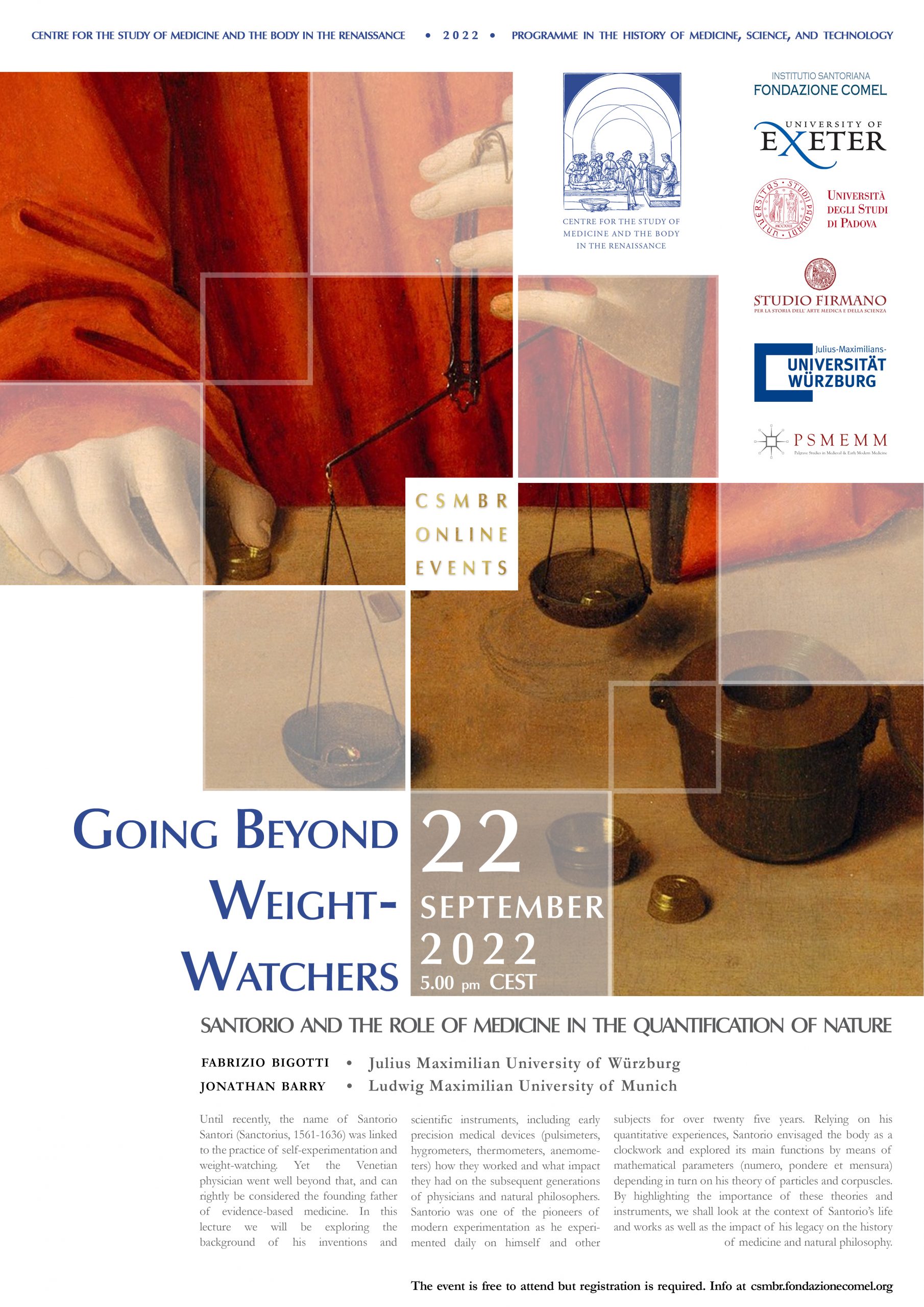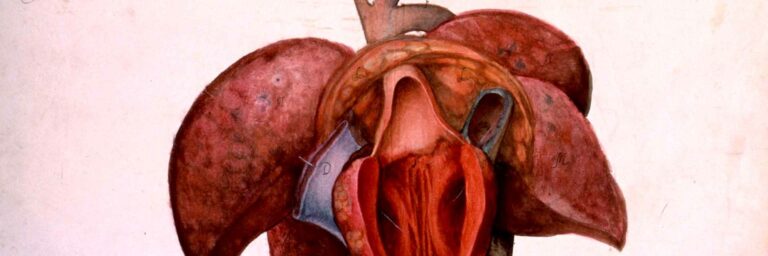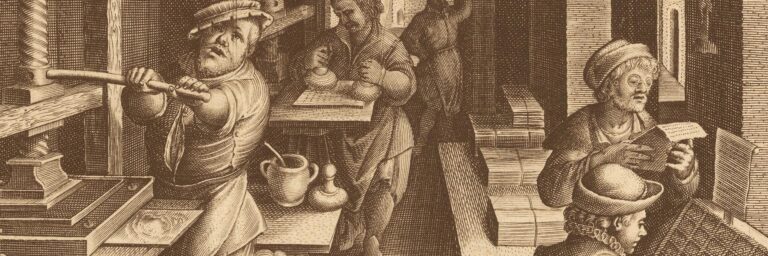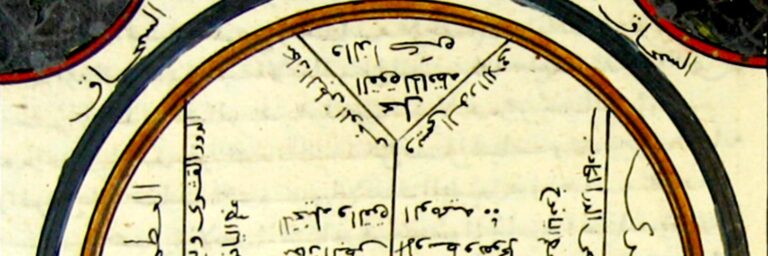Going Beyond Weight-Watchers
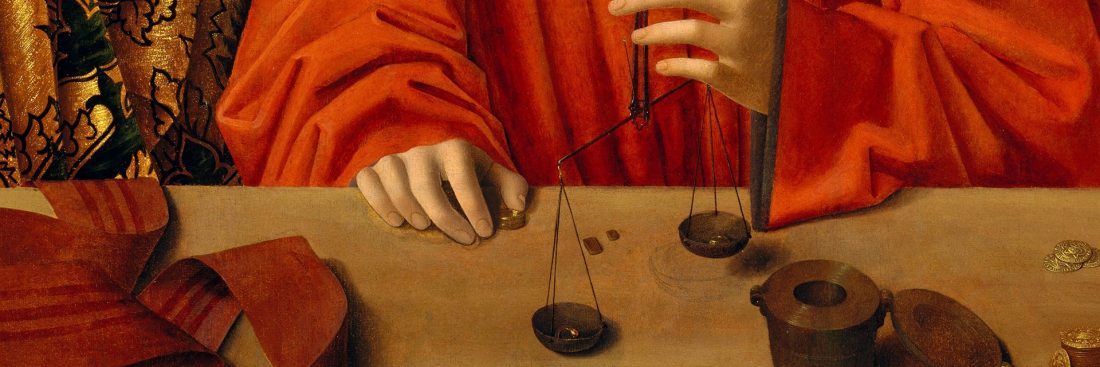
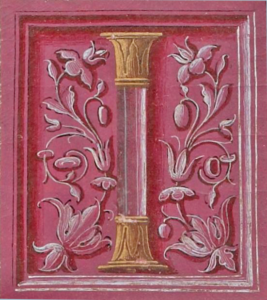
Going Beyond
Weight-Watchers
Santorio and the Role of Medicine in the Quantification of Nature
Fabrizio Bigotti
Jonathan Barry
22 September 2022 – 5 PM (CEST)
Until recently, the name of Santorio Santori (Sanctorius, 1561-1636) was linked to the practice of self-experimentation and weight-watching. Yet the Venetian physician went well beyond that, and can rightly be considered the founding father of evidence-based medicine.
In this lecture we will be exploring the background of his inventions and scientific instruments, including early precision medical devices (pulsimeters, hygrometers, thermometers, anemometers) how they worked and what impact they had on the subsequent generations of physicians and natural philosophers.
Santorio was one of the pioneers of modern experimentation as he experimented daily on himself and other subjects for over twenty five years. Seeking certainty, he devised and constructed new instruments, such as the ‘weighing chair’ (statera medica), the hygrometer, the first graded thermometer, and the ‘pulsilogium’ (an early pulsimeter).
Through these instruments, he managed to assess each of the many parameters involved in the complex calculation of the perspiratio insensibilis (insensible perspiration of the body). Relying on his quantitative experiences, Santorio envisaged the body as a clockwork and explored its main functions by means of mathematical parameters (numero, pondere et mensura) depending in turn on his theory of particles and corpuscles.
By highlighting the importance of these theories and instruments, we shall look at the context of Santorio’s life and works as well as the impact of his legacy on the history of medicine and natural philosophy.



